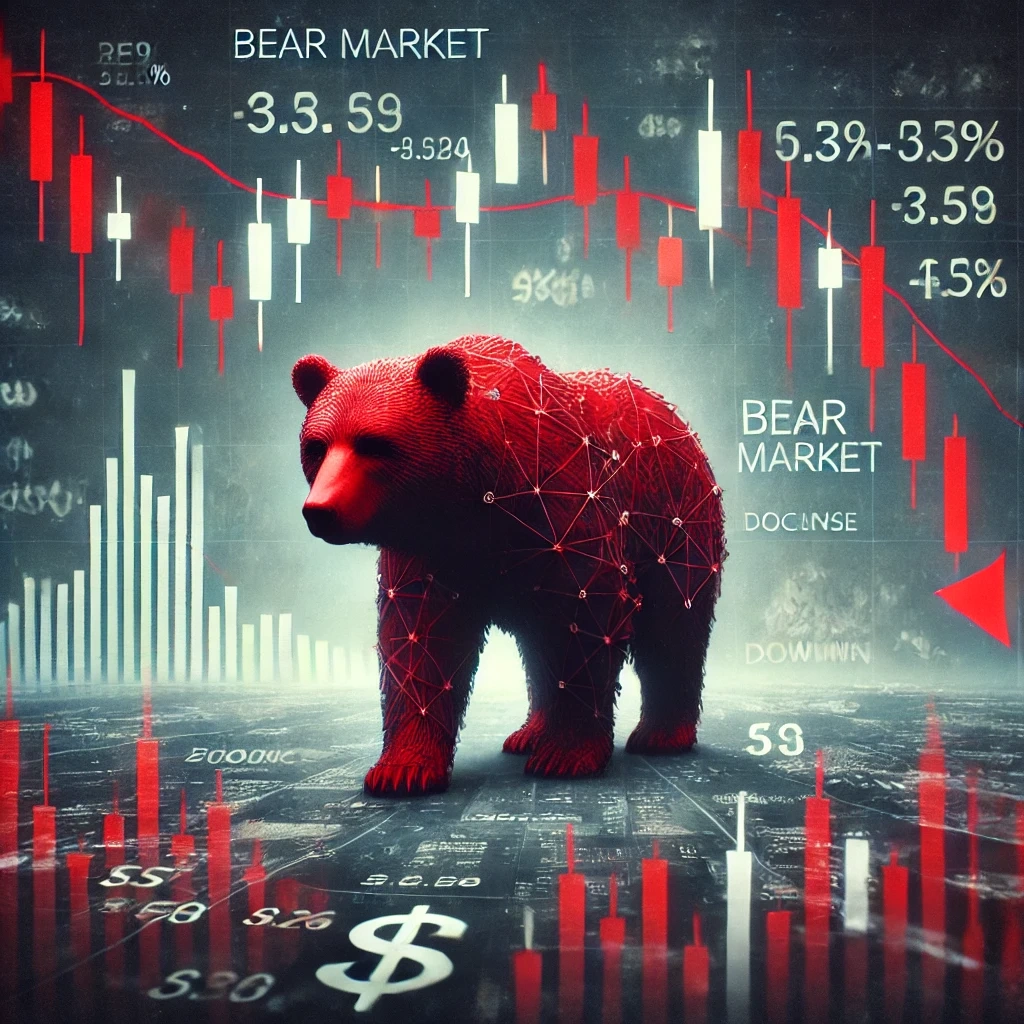Explore how fund managers leverage fundamental and macroeconomic analysis to build resilient investment portfolios.
Investing during a bear market can be risky, even for experienced investors. A bear market occurs when stock prices drop more than 20% from their peak, causing a decline in stock values and a generally negative market outlook.
On the other hand, bear markets also act as an advantage for the investors who use strategies like averaging or buying on dips. One effective way to navigate these downturns is by investing in mutual funds specifically designed to manage market declines while delivering stable returns. In this article, let us check out the best defensive mutual funds for bear markets.
Understanding Bear Markets and Their Impact on Investments
The impact of a bear market on the investor’s portfolio can be significant, especially if one is heavily invested in growth stocks or sectors highly sensitive to economic cycles. However, not all investments perform poorly during bear markets. Some asset classes and investment strategies are specifically designed to perform well in declining markets or at least mitigate losses. A bear market generally goes through four stages.
- First Stage: First, stock prices are high, and investors are confident regarding their investment. But towards the end of this phase, a few investors sell their stocks to book profits and close out of the market.
- Second Stage: Share prices drop fast at this stage, companies make less money, and business activity slows off. Economic indicators that had been favourable in the past started to deteriorate. Most investors are frightened and sell their shares, a phenomenon referred to as capitulation.
- Third Stage: At this point, some risk-taking investors re-enter the market, causing a slight rise in stock prices and an increase in trading activity.
- Fourth Stage: In the final phase, stock prices continue to fall, but at a lesser pace. As prices remain low and positive news emerges, investors regain interest, eventually leading the market towards recovery and the beginning of a bull market.

Bear Market
Top Mutual Funds to Consider in a Bear Market
Some of the best low-risk mutual funds during market downturns, categorised by their investment strategy are: Low-risk mutual funds during market downturns
1.Debt funds:
These are the funds which invest in fixed income securities like bonds, government securities, etc. They are better investment options during bear markets as they are less volatile than stock funds. When stock prices fall, investors usually shift to safe fixed retirement instruments like bonds, driving up their prices and providing stability to bond funds.
Looking at the bear market in 2022 due to Russia-Ukrain war issues, the Nifty-50 index fell from 18,260 in January 2022 to 15,260 in June 2022. But at the same time, the bond yields increased from 6.62 in January 2022 to 7.54 in June 2022 which shows the inverse relation between both the asset classes. So in such
2.FMCG and Health-care sector funds:
These funds invest in industries less sensitive to economic cycles, such as fast-moving consumer goods and healthcare. Since these sectors provide essential goods and services that people require continuously, their performance remains relatively stable regardless of government capital expenditure or economic downturns.
For example, in the 2022 bear market, the Nifty-Fmcg index was positive by 9-11%, which shows they were less volatile compared to the other sector funds at the time of the bear market.
3.Gold Funds
Gold and other precious metals are usually taken as safe-haven assets in bear markets. Funds that invest in these assets can act as a hedge against market falls. This is because gold and equity markets are inversely correlated. In the past one year from March 2024 to till date, correlation figures stand at -0.064, which means when gold rises, the Sensex tends to decline, making gold a potential hedge against stock market downturns. So gold can be a top-performing mutual funds during recessions.
Unlike paper currencies, gold is a physical asset having intrinsic value. It has been used as a store of value for centuries, making it a reliable investment during uncertain times. Gold is very liquid in nature, which means it can be easily traded by buying and selling. Gold funds offer the added benefit of professional management and diversifications in the sectors.

Gold a better investment to hedge
Hybrid Funds
These are the types of funds which invest in both equity and debt. Depending on the market condition, the fund managers change the allocation accordingly. In a bear market, this fund invests more towards fixed-income securities, debt, etc, helping the investor to reduce their risks. Seeing the historic returns of this category of funds, they have maintained a good CAGR rate of 15% and above in the past five years, despite two big market falls due to COVID and the Russia-Ukraine war issues. These are the mutual funds with consistent returns in bear markets.
Strategies for Investing in Mutual Funds During a Bear Market
- Diversification: Investors should not put all their money in one place. Investing in different types of mutual funds helps reduce risk.
- Continuous Investment: Despite the market correction, one can follow the strategy of buying on dips, which will help to buy units at a lower cost and will also give averaging benefits. However, this strategy may not suit every investor, so it’s important to assess individual risk tolerance and financial goals. Investors may also consult a financial advisor before making any investment decisions.
- Rebalancing Portfolios: Review the portfolio from time to time and make changes to keep it in line with the investment goals.
- Focus on Quality Funds: Investors need to do a detailed analysis before the selection of funds. For this, they may look at the past returns of the funds, risk ratios, ratings etc. Many online platforms are now available to access detailed analysis and comparisons of various funds, making the research process more convenient and efficient.

Buy-on dips are an effective strategy.
Conclusion
Bear markets are a natural part of the capital markets and can reduce investor returns. However, by investing in the right mutual fund, investors can protect their money and benefit from long-term growth. In a bear market, debt, defensive, gold, and hybrid funds can be safe mutual fund investments in volatile markets.
DISCLAIMER: The information given in this blog is for educational purposes only. Any content of this blog is not investment advice.









